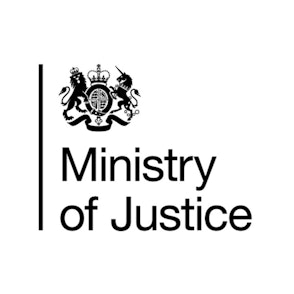What you need to know
Important Update: Changes to Level 7 Apprenticeship Funding
Recent Government changes mean Level 7 apprenticeships will now only receive government funding for learners who are either under 22 at the start of their training, or under 25 with an Education, Health and Care (EHC) plan or who have been in local authority care.
If you or your colleagues are 22 or over and do not have an EHC plan, this programme will no longer be available under the levy-funded route.
Alternative options to consider:
- Henley’s Level 6 Chartered Manager Degree Apprenticeship | BA (Hons) in Applied Management – ideal for those without a prior management or business degree.
- Henley’s Triple-Accredited MBA - For experienced leaders with a degree and a minimum of three years’ management experience.
- Short, non-qualification programmes - Designed for immediate impact and practical application.
Overview
The Senior Leader Apprenticeship | Future Leaders programme is a unique opportunity for recent graduates to develop. Apprentices will build on their existing academic and professional skills. This will prepare them to become senior business leaders who can manage their responsibilities effectively. The work-based teaching and support will expand learners' capabilities to fast track their careers, even if they are just beginning.
Apprentices will build an in-depth understanding of strategic management, relationship building, corporate responsibility and change. Our combined approach of theory and on-the-job practice supports learners to become knowledgeable and competent in real-world business scenarios.
Key benefits for businesses
- Develop your future leaders to support transformation within your organisation
- Support staff retention by investing in the development of your employees
- Work-based learning can be a powerful vehicle for developing workplace skills and increasing productivity
Key benefits for individuals
- Acquire the skills needed to lead and manage the future organisation
- Develop the capability to lead change and innovation in complex environments
- Develop a critical and curious mindset and the confidence to challenge the status quo

"The difference in my career and personal growth once I started my learning was incredible, and I could understand so much more in my role than I otherwise would due to the resources available."
Course structure
Personal development for future leaders is integral to the programme and is embedded throughout the course. The programme includes two workshop days for personal development, which enables apprentices to reflect and encourages them to develop positive new behaviours.
Leading and managing, strategically and responsibly
Strategic management (MNM1STM)
20 [10 ECTS credits]Strategy is contentious and in addressing the topic, this module explores how and where firms create competitive advantage in their markets. In doing so, it will introduce students to strategy and strategic marketing with well established theories, frameworks and models used by strategists and they will explore how they are applied in practice.
Read moreManaging innovation and change (MNM1MIC)
15 [7.5 ECTS credits]This module builds on the selection of strategies and models which learners may want to use in order to innovate new products and services in their organisations. The module offers It building innovation skills and capabilities by setting up a new venture or by developing and testing innovative ideas in existing companies.
Read moreCorporate responsibility and ethics (MNM1CRE)
10 [5 ECTS credits]Corporate responsibility and ethics have become a major topic of debate and concern in contemporary society, but also an area of managerial importance for organisations and their leaders.
Read moreFinancial management (MNM1FIN)
15 [7.5 ECTS credits]This module aims to equip students with relevant accounting and financial management knowledge in decision making, especially for those who have little background in accounting and financial management.
Read morePersonal development for future leaders (MNM1PDFL)
10The Personal Development for Future Leaders module is an integrated and holistic part Senior Leader Apprenticeship (Future Leaders) and is split over the 2 stages of the programme.
Read moreLeading and managing people for high performance and impact
Finding your leadership DNA (MNM2DNA)
20 [10 ECTS credits]Finding your leadership DNA places practising managers at the centre of their development as effective change leaders, faced with real dilemmas, and choices about courses of action. Through exploration of the links between leadership, the change context, culture, and change practice, they will be able to make informed decisions about how to mobilise the leadership and change resources at their disposal (individually and collectively).
Read moreManaging people and organisations (MNM2MPO)
15 [7.5 ECTS credits]Talented people are your company’s most valuable asset and, bottom line, the key to success. However, it takes sophisticated conceptual and analytical skills to deliver this. It needs a deep understanding of people in an organisational context. This module provides the tools and frameworks to allow you to thrive in the world of Managing People and Organisations.
Read morePersonal development for future leaders II (MNM2PDF2)
10The Personal Development for Future Leaders module is an integrated and holistic part Senior Leader Apprenticeship (Future Leaders) and is split over the 2 stages of the programme.
Read moreThe final stage of the apprenticeship is the end-point assessment (EPA), comprising an Evidence portfolio and final Strategic business proposal.
Strategic business proposal (MNM3SBP)
15 [7.5 ECTS credits]This module sets out to provide knowledge, skills and behaviours required by senior leaders in today’s world.
Read moreModules or course content marked as optional are indicative and may be subject to change. Please note, constraints in timetable scheduling may mean you are unable to take some optional modules at the same time as others.
Learning and support
Integrated learning approach
- Combines on-the-job learning with formal and informal off-the-job training.
- Includes taught sessions, workshops, one-to-one mentoring, and self-study.
Off-the-job training
- Minimum 6 hours per week (equivalent to working hours).
- Delivered through activities both at Henley and work like attending workshops or meetings, taking on new responsibilities, shadowing, or attending conferences.
Workplace application
- Apprentices continue their day job, applying their new knowledge, skills and behaviours in real-time.
Line manager support
- Line managers play a vital role in the apprentice’s success.
- Engage with Henley tutors to facilitate training opportunities and work-based projects.
Read more on how to support an apprentice with the Henley Essential Apprenticeship Guides

"I didn’t realise how quickly I could use these new tools. I could use the knowledge from each learning session with Henley at work and immediately apply it to the team."
Programme director

Vicki Murray
Programme Director - Senior Leader Apprenticeship | Future Leaders
Vicki has over 20 years of experience as a manager and senior leader in a variety of educational settings with a specific focus on leading change and raising performance.
See full profileAssessment and awards
Assessment
Apprentices demonstrate the depth and impact of their learning by submitting work-based projects at the end of each module. These projects reflect practical application and mastery of key concepts.
Awards
On successful completion of the programme, apprentices will be awarded a:
- Henley Postgraduate Diploma in Management for Future Leaders
- Level 7 Senior Leader Apprenticeship | Future Leaders.
For employers that choose the CMI as the end-point assessment organisation, apprentices may also achieve:
- CMI Level 7 Award in Strategic Management and Leadership Practice
- Chartered Manager Status (on successful EPA)
- CMI student membership (programme duration plus three months, with option for individuals to pay for full membership thereafter).
Entry requirements
For employers
Nomination and agreement
- Employers must formally nominate learners before they can apply for our apprenticeship programmes.
- A three-way agreement is required between the employer, the apprentice, and Henley Business School/University of Reading.
Funding information
- For those wishing to be funded by the Apprenticeship Levy, learners must be 21 or under, or be under 25 with an Education, Health and Care (EHC) plan or experience of local authority care. This programme is no longer available to those who do not meet these criteria.
Find out more about the application process.
For Individuals
To apply for an apprenticeship programme you must be formally nominated to Henley by your organisation.
Entry requirements
Eligibility
- Must meet the Skills England Apprenticeship eligibility criteria.
- Check eligibility for apprenticeship funding through your employer.
Professional experience
- Less than three years of managerial experience.
- Must hold a role that allows for the application of Senior Leader Apprenticeship criteria and provides opportunities for substantial new learning.
Qualifications
- A 2:1 degree or higher from a UK institution (or equivalent)
- OR five years of professional experience.
Baseline assessment
- As part of the application, a baseline assessment will determine suitability for the programme.
Need further guidance with your application?
Email the Apprenticeship Engagement Team OR Book a call.
Progression onto the MSc
Apprentices who meet the requirements for the Postgraduate Diploma in Management for Future Leaders can choose to progress to Stage 3 of Henley’s MSc in Management for Future Leaders.
Key details for MSc progression:
- Credits transfer: If learners continue to the MSc, the credits earned in the Postgraduate Diploma will count toward Stages 1 and 2 of the MSc. In this case, learners will not receive the Postgraduate Diploma certificate.
- Graduate with the Diploma first: Learners can graduate with the Postgraduate Diploma and return to complete the MSc within three years. However, upon returning, the Postgraduate Diploma certificate will be rescinded as the credits are applied to the MSc.
- Additional costs: The MSc Stage 3 fee is £5,450, with an early bird discount of 10% for learners who express interest before the end of Stage 1 of the Senior Leader Apprenticeship.
Important note:
- Cohort Availability: Stage 3 may not be immediately available, requiring learners to wait 6–12 months after completing the Senior Leader Apprenticeship.
- Flexibility: Workshop and assignment submission dates may change. Henley Business School reserves the right to postpone programme start dates if minimum cohort numbers are not met.
MSc Management for Future Leaders Stage 3 fee: £5,450
An early bird discount of 10% is available to all learners who express an interest in progressing onto the MSc before the end of Stage 1 of the Senior Leader Apprenticeship | Future Leaders.
Learners who started from October 2024 onwards will be eligible for the same discount if they express interest up to the start of Stage 2.
Find out more about Stage 3 of the MSc Management for Future Leaders
Fees
Senior Leader Apprenticeship | Future (+MSc): £14,000
- Funded via your organisation’s apprenticeship service account. (Employers must have an account to access the service.)
- Contact our apprenticeships team for more details
Progression to Stage 3 – MSc Management for Future Leaders: £5,450
- Early bird discount available!
Location and facilities
Location
For clients wishing to run a closed cohort, we have the flexibility to deliver the programme at locations nationwide. If you do not wish to use your organisation's facilities, we are happy to arrange an alternative teaching venue that may be more convenient for your staff.
Open cohort workshops are typically taught at our Greenlands campus near Henley-on-Thames. Set in sweeping parkland on the banks of the River Thames, this beautiful campus provides an inspiring and reflective environment for focused work and study.
Facilities
Through the Henley Business School Library and the virtual learning environment, learners can access a multitude of resources including books, journals, market research reports, dissertations, working papers and company information.
Find out more about our facilities and how to find us
Why choose Henley?
For 80 years, Henley Business School has developed confident and resilient business leaders. Find out more about our approach to working with you

Our Apprenticeship programmes are rated Good by Ofsted across all areas - quality of education, behaviour and attitudes, personal development, and leadership and management.
To ensure that apprentices’ work and training are well co-ordinated and effective, Henley’s tutors and line managers collaborate fully with employers and apprentices.
At Henley, we offer a full portfolio of programmes from early career all the way up to board level, and it’s this broad experience that enables us to have a clear and complete vision for our apprenticeship provision.
Contact us
For more information about Henley’s apprenticeship programmes please contact
Email: apprenticeships@henley.ac.ukTelephone: (0)118 378 4030











